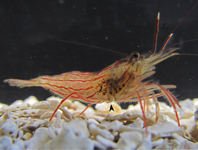Abstract
Ogcodes Latreille is the largest genus of Acroceridae. They exhibit a cosmopolitan distribution and parasitize several spider families. Eleven Neotropical species are currently recognized in the genus, with five of them occurring in Chile, though distribution data is limited in this group of rarely collected flies. In this work, we describe a new species, Ogcodes kunkunche sp. nov. Barahona-Segovia from the evergreen forest of Chiloé Island, provide an identification key to the Chilean species of Ogcodes, and include novel distributional data for other species of spider flies (Acrocerinae and Ogcodinae). Based in our results, we suggest that O. kunkunche sp. nov. must be incorporated in the porteri group, due to wing vein reduction. Morphological aspects within Ogcodes, and their evolutionary implications are discussed.
References
Arnaud, P.H. Jr. (1979) A catalog of the types of Diptera in the collection of the California Academy of Sciences. Myia, 1, 1–505.
Barneche, J.A., Gillung, J.P. & González, A. (2013) Description and host interactions of a new species of Exetasis Walker (Diptera: Acroceridae), with a key to species of the genus. Zootaxa, 3664 (4), 525–536.
https://doi.org/10.11646/zootaxa.3664.4.6
Barraclough, D.A. & Croucamp, W. (1997) A new South African species of Ogcodes Latreille (Diptera: Acroceridae) reared from sac spider of the genus Cheiracanthium Koch (Miturgidae). Annals of the Natal Museum, 38, 55–60.
Brèthes, J. (1925) Coléopteres et diptères Chiliens. Revista Chilena de Historia Natural, 29, 198–208.
Cady, A., Leech, R., Sorkin, L., Stratton, G. & Caldwell, M. (1993) Acrocerid (Insecta: Diptera) life histories, behaviors, host spiders (Arachnida: Araneida), and distributional records. The Canadian Entomologist, 125, 931–944.
https://doi.org/10.4039/Ent125931-5
Cole, F.R. (1919) The dipterous family Cyrtidae in North America. Transactions of the American Entomological Society, 45, 1–79. [https://www.jstor.org/stable/25077002]
Cumming, J.M. & Wood, D.M. (2017) Adult morphology and terminology. In: Kirk-Spriggs, A.H. & Sinclair, B.J. (Eds.), Manual of Afrotropical Diptera. Vol. 1. Introductory chapters and keys to Diptera families. Suricata 4, South African National Biodiversity Institute, Pretoria, pp. 89–133.
ESRI (2017) ArcGIS desktop and spatial analyst extension. Release 10.4.1. Environmental Systems Research Institute, Redlands. [program]
Gillung, J. & Borkent, C.J. (2017) Death comes on two wings: a review of dipteran natural enemies of arachnids. Journal of Arachnology, 45, 1–19.
https://doi.org/10.1636/JoA-S-16-085.1
Gillung, J.P. & Carvalho, C.D. (2009) Acroceridae (Diptera): a pictorial key and diagnosis of the Brazilian genera. Zootaxa, 2175 (1), 29–41.
https://doi.org/10.11646/zootaxa.2175.1.3
Gillung, J. & Winterton, S. (2011) New genera of philopotine spider flies (Diptera, Acroceridae) with a key to living and fossil genera. ZooKeys, 127, 15–27.
https://doi.org/10.3897/zookeys.127.1824
Gillung, J.P. & Winterton, S.L. (2019) Evolution of fossil and living spider flies based on morphological and molecular data (Diptera, Acroceridae). Systematic Entomology, 44 (4), 820–841.
https://doi.org/ 10.1111/syen.12358
Gillung, J.P., Winterton, S.L., Bayless, K.M., Khouri, Z., Borowiec, M.L., Yeates, D., Kimsey, L.S., Misof, B., Shin, S., Zhou, X., Mayer, C., Petersen, M. & Wiegmann, B.M. (2018) Anchored phylogenomics unravels the evolution of spider flies (Diptera, Acroceridae) and reveals discordance between nucleotides and amino acids. Molecular phylogenetics and evolution, 128, 233–245.
https://doi.org/10.1016/j.ympev.2018.08.007
González, C.R., Elgueta, M. & Ramírez, F. (2018) A catalog of Acroceridae (Diptera) from Chile. Zootaxa, 4374 (3), 427–440.
https://doi.org/10.11646/zootaxa.4374.3.6
Hennig, W. (1968) Ein weiterer Vertreter der Familie Acroceridae im Baltischen Bernstein (Diptera: Brachycera). Stuttgarte Beiträge zur Naturkunde, 5 (185), 1–6.
Hunter, W.D. (1901) Catalogue of the Diptera of South America. Part II, Homodactyla and Mydiadae. Transactions of the American Entomological Society, 27, 121–155.
Kehlmaeir, C. & Almeida, J.M. (2014) New host records for European Acroceridae (Diptera), with discussion of species limits of Acrocera orbiculus (Fabricius) based on DNA-barcoding. Zootaxa, 3780 (1), 135–152.
https://doi.org/10.11646/zootaxa.3780.1.5
Kerr, P.H. & Winterton, S.L. (2008) Do parasitic flies attack mites? Evidence in Baltic amber. Biological Journal of the Linnaean Society, 93, 9–13.
https://doi.org/10.1111/j.1095-8312.2007.00935.x
Larrivée, M. & Borkent, C.J. (2009) New spider host associations for three acrocerid fly species (Diptera, Acroceridae). Journal of Arachnology, 37, 241–242.
https://doi.org/10.1636/T08-62.1
Philippi, R.A. (1871) Bechreibung einiger neuer chilenischer Insecten. Stettiner Entomologische Zeitung, 32 (7–9), 285–295, 1 pl.
Sabrosky, C.W. (1945) Two new species of Ogcodes from Chile (Diptera, Acroceridae). Revista Chilena de Historia Natural, 48 (1), 317–319.
Sabrosky, C.W. (1948) A further contribution to the classification of the North American spider parasites of the family Acroceratidae (Diptera). The American Midland Naturalist, 39, 382–430.
https://doi.org/10.2307/2421592
Sabrosky, C.W. (1951) A new species of Ogcodes from the Juan Fernández Islands (Diptera Acroceridae). Revista Chilena de Entomología, 1, 189–190.
Schlinger, E.I. (1953) A new Chilean species of Ogcodes Latreille (Diptera: Acroceridae). Wasmann Journal of Biology, 11, 319–321.
Schlinger, E.I. (1960) A revision of the genus Ogcodes Latreille with particular reference to species of the Western Hemisphere. Proceedings of the United States National Museum, 111 (3429), 227–336, pls. 1–13.
https://doi.org/10.5479/si.00963801.111-3429.227
Schlinger, E.I. (1981) Acroceridae. In: McAlpine, J.F., Peterson, B.V., Shewell, G.E., Teskey, H.J., Vockeroth, J.R. & Wood, D.E.M. (Eds.), Manual of Nearctic Diptera. Vol. I. Research Branch, Agriculture Canada, Ottawa, pp. 575–584.
Schlinger, E.I. (1987) The Biology of Acroceridae (Diptera): True Endoparasitoids of Spiders. In: Nentwig, W. (Ed.), Ecophysiology of Spiders. Springer, Berlin, Heidelberg, pp. 319–327.
https://doi.org/10.1007/978-3-642-71552-5_24
Schlinger, E.I., Gillung, J.P. & Borkent, C.J. (2013) New spider flies from the Neotropical Region (Diptera, Acroceridae) with a key to New World genera. Zookeys, 270, 59–93.
https://doi.org/10.3897/zookeys.270.4476
Smith-Ramírez, C. (2004) The Chilean coastal range: a vanishing center of biodiversity and endemism in South American temperate rainforests. Biodiversity & Conservation, 13, 373–393.
https://doi.org/10.1023/B:BIOC.0000006505.67560.9f
Smith-Ramírez, C., Martinez, P., Nuñez, M., González, C. & Armesto J.J. (2005) Diversity, flower visitation frequency and generalism of pollinators in temperate rain forests of Chiloé Island, Chile. Botanical Journal of the Linnean Society, 147, 399–416.
https://doi.org/10.1111/j.1095-8339.2005.00388.x
Smith-Ramírez, C., Martínez, P., Díaz, I., Galaz, M. & Armesto, J.J. (2016) Upper canopy pollinators of Eucryphia cordifolia Cav., a tree of South American temperate rain forest. Journal of Insect Biodiversity, 4, 1–7.
https://doi.org/10.12976/jib/2016.4.9
Smith-Ramírez, C., Ramos-Jiliberto, R., Valdovinos, F.S., Martínez, P., Castillo, J.A. & Armesto, J.J. (2014) Decadal trends in the pollinator assemblage of Eucryphia cordifolia in Chilean rainforests. Oecologia, 176, 157–169.
https://doi.org/10.1007/s00442-014-3000-0


